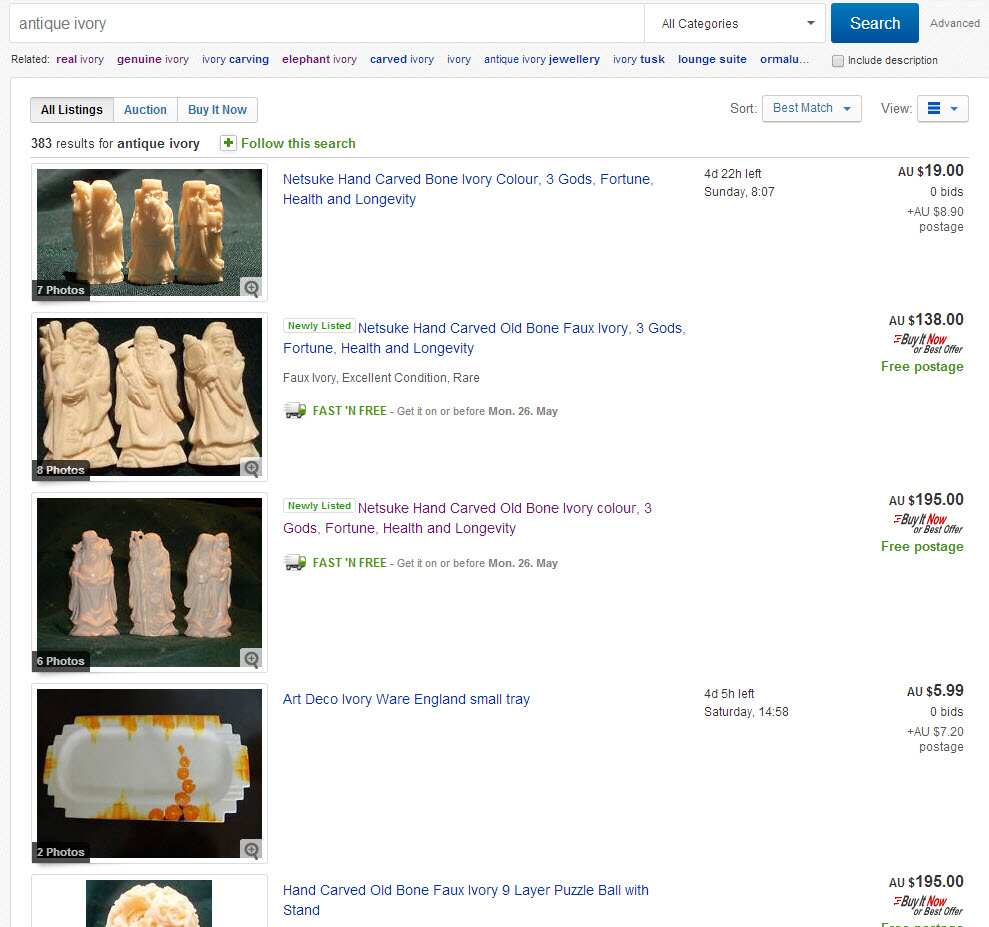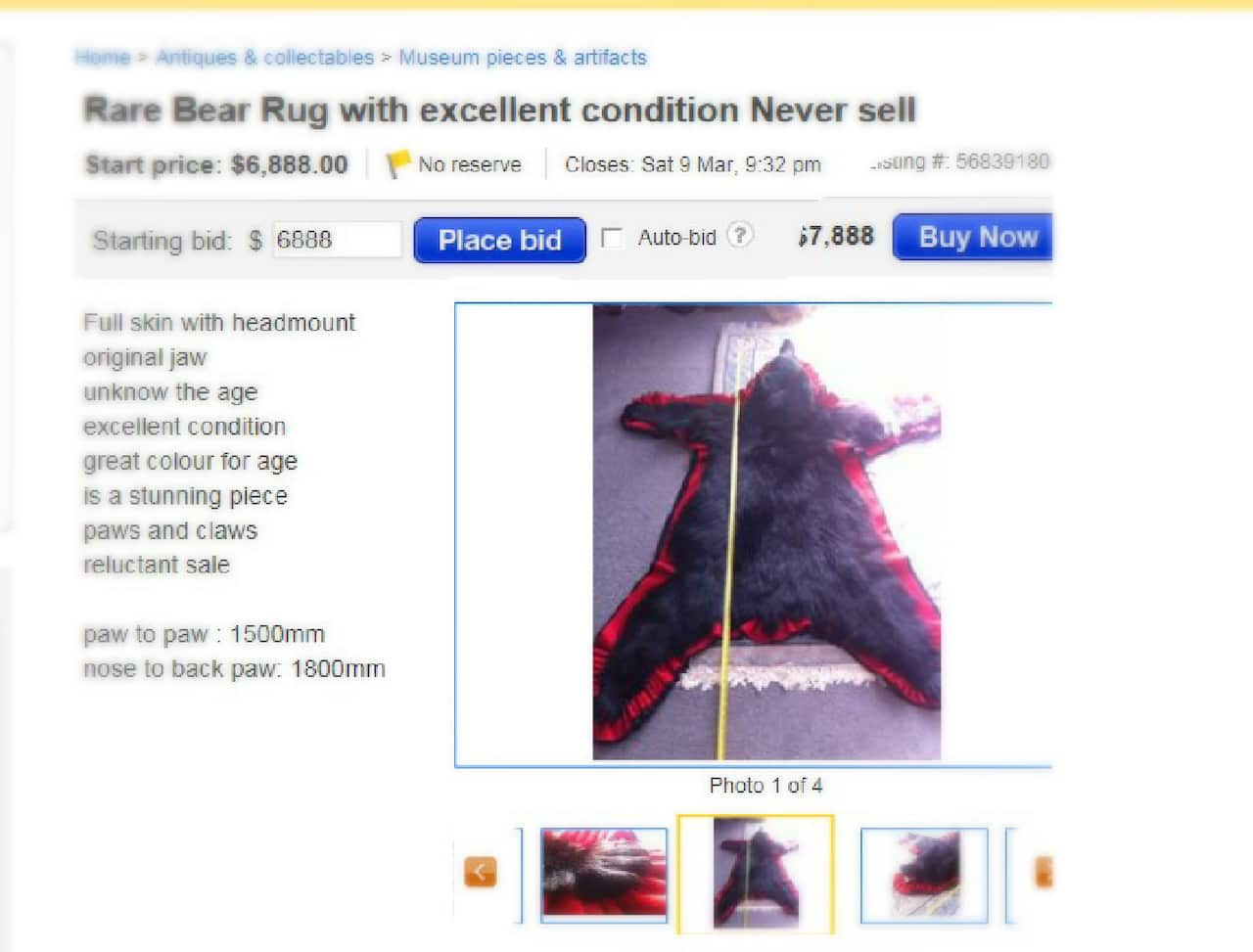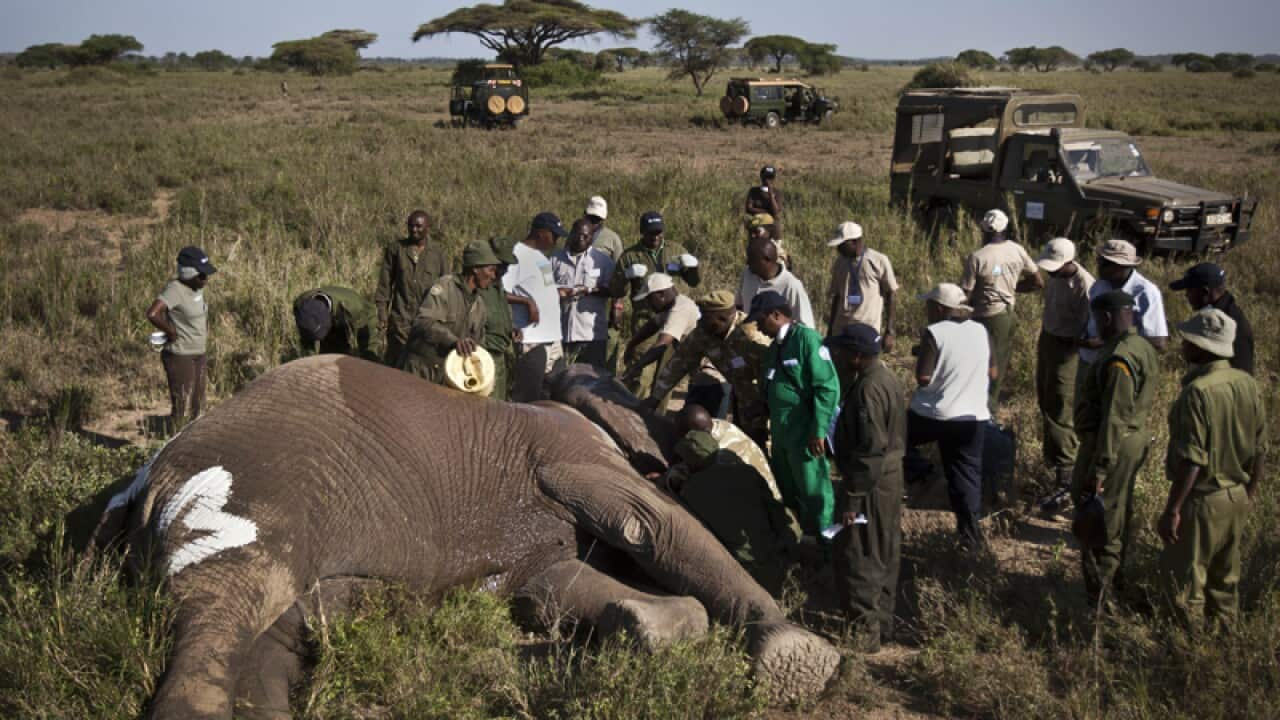Buying illegal animal products online could lead to serious fines and imprisonment, the government has warned.
The Australian Customs and Border Protection Service (ACBPS) said consumers need to watch out for online dealers who sell illegal animal parts on platforms like eBay or Gumtree.
Although some websites have explicitly prohibited the sale of illegal animal products, sellers can easily bypass the ban and evade detection by using words like ‘fake’, 'faux' or ‘antique’ in their listings.
ACBPS told SBS they actively monitor the online sales of illegal products and anyone caught buying these items could face heavy fines and even jail time.
“Illegally importing any border controlled good is taken very seriously. In addition to the risk of being exploited by online dealers, consumers also risk the prospect of a serious fine and/or imprisonment,” a spokesperson told SBS.
“ACBPS actively engages the online commerce industry, including eBay and its subsidiary businesses, to identify and prosecute sellers and buyers who engage in illegal online trade.”
The black market is estimated to be worth at least $A22 billion per year worldwide. Between 1998 to 2008, six per cent of seizures of illegal or endangered animals were made by Australian authorities.
For sale: elephant ivory, whole leopard skin and seal penis
The warning comes in the wake of a new report revealing that the online sales of endangered and illegal animal products have proliferated on popular e-commerce platforms.
The International Fund for Animal Welfare (IFAW) found a 266 per cent increase in the number of endangered wildlife offered for sale on Australian websites since 2008.
Despite having policies that prohibit the black market trade, eBay Australia and Gumtree Australia are reportedly the two biggest offenders.
Researchers found that the number of advertisements for illegal animal products on Australian e-commerce sites grew from 77 listings in 2008 to 282 listings in 2013.
According to the report ‘Click to Delete’ the most common item for sale was ivory, with eBay Australia responsible for the majority of these listings.
Other products included nine turtle products (such as shells), six big cat products (including a whole leopard skin, tiger teeth and claws) and traditional medicine products containing leopard bone, seal penis and two musk deer.
“It’s very worrying because at the moment we have a huge poaching crisis in many parts of the world,” IFAW Oceania Regional Director Isabella McCrea told SBS.
“Those are all highly protected species that should be banned from trade.”
Policing the illegal wildlife trade online
Though websites have banned the sale of illegal animal products, sellers can evade detection by using terms like 'antique' or 'fake' in their advertisements.
An eBay Australia spokeswoman said the company has met with IFAW and will be updating their monitoring policies.
“We have met with IFAW and we will be updating our filters and monitoring policies immediately based on the information they shared. We will also be investigating new partnerships with authorities and piloting training programs for our staff so that they can more easily identify these items."
But with more than 125 million users and 500 million listings, the e-commerce giant said it would be hard to monitor every illegal animal product advertised.



Although companies like eBay have banned the sale of illegal animal products, sellers evade detection by adding words like "antiques" or "faux" to their listings. (Photo: IFAW)

Although companies like eBay have banned the sale of illegal animal products, sellers evade detection by adding words like "antiques" or "faux" to their listings. (SBS)

(Screenshot: IFAW)
Under the Environment Protection and Biodiversity Conservation Act 1999, it is illegal to import or export internationally endangered animals, export native species, and import live plants or animals.
(This legislation complies with the Convention on International Trade in Endangered Species of Wild Fauna and Flora (CITES), which categorises species according to how endangered they are. For example, "CITES Appendix I" species, such as rhinoceroses, cheetahs, tigers, elephants and sea turtles, are most at risk and are threatened with extinction).
Laws are not 'up to date with online world’
But IFAW argues these laws are not enough to deter the sale of illegal animal parts over the internet.
"The online trade is very ephemeral. One minute the advert is there, the next it’s gone. It’s a very large market place. So it requires a lot of capacity for law enforcers to police that environment," said Ms McCrea.
"The laws really need to change to keep up to date with the online world."
Ms McCrae told SBS she would like to see the Australian government introduce new offences such as ‘offer for sale’ and ‘offer to purchase’, which the European Union implemented in 2013.
IFAW is also calling for websites to add compulsory ‘pop-up’ notices to warn buyers about the potential illegality of their purchase.
"It’s not really very useful to have a policy that’s tucked away on an obscure page. It really needs to be in front of people as they’re posting an ad or making a bid," she said.
What to do if you suspect something
- Be cautious. "We would say to people, don’t buy wildlife items. If you buy, they die. It’s really best to err on the safe side," Ms McCrae said. "You can’t really be sure what you’re buying online, especially in overseas sites."
- Check that the products have legal permits and proof of origin. The item might be labelled "antique" but can you be sure? If you’re a consumer, make sure you’re not unwittingly contributing to the illegal wildlife trade.
- If in doubt don’t buy. If the product is CITES-listed species, you could be making an illegal purchase.
- Report it. If you see anything suspicious online, contact the International Fund for Animal Welfare or the Department of Environment.
Share

